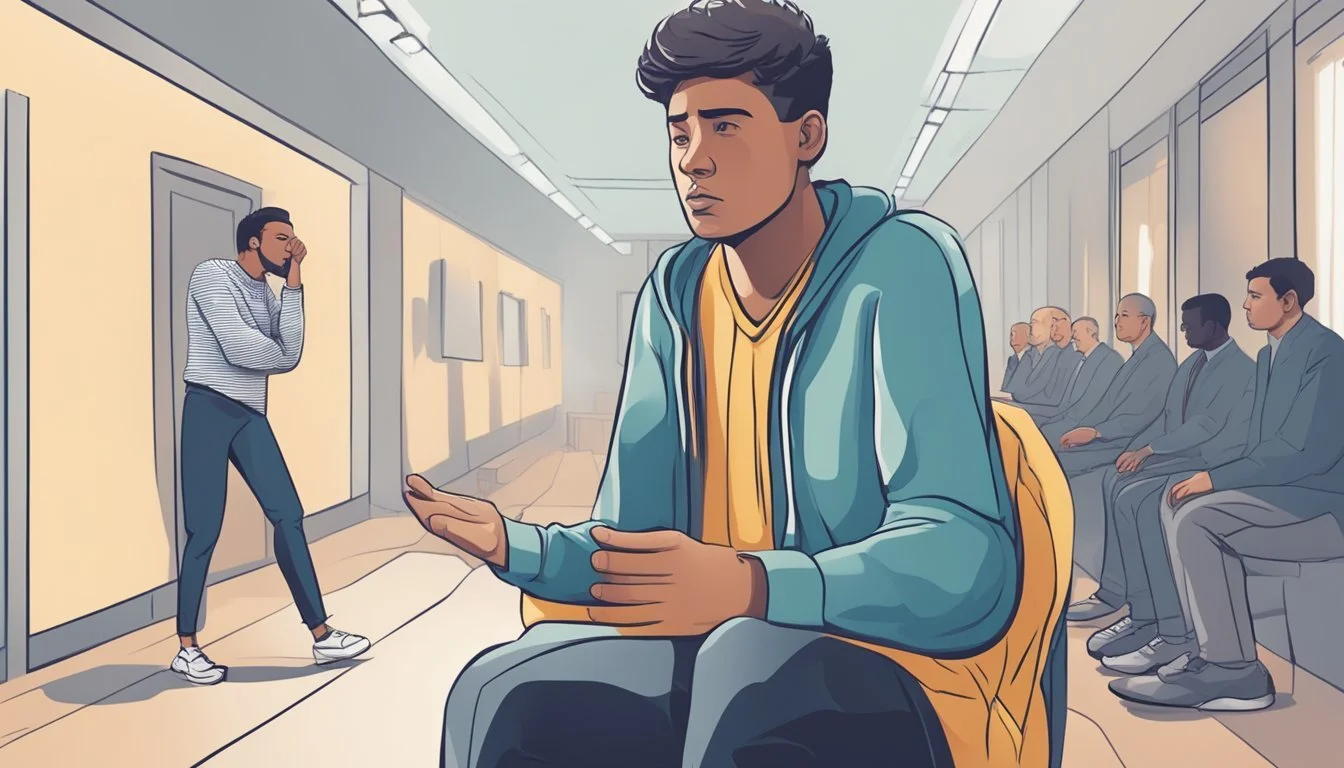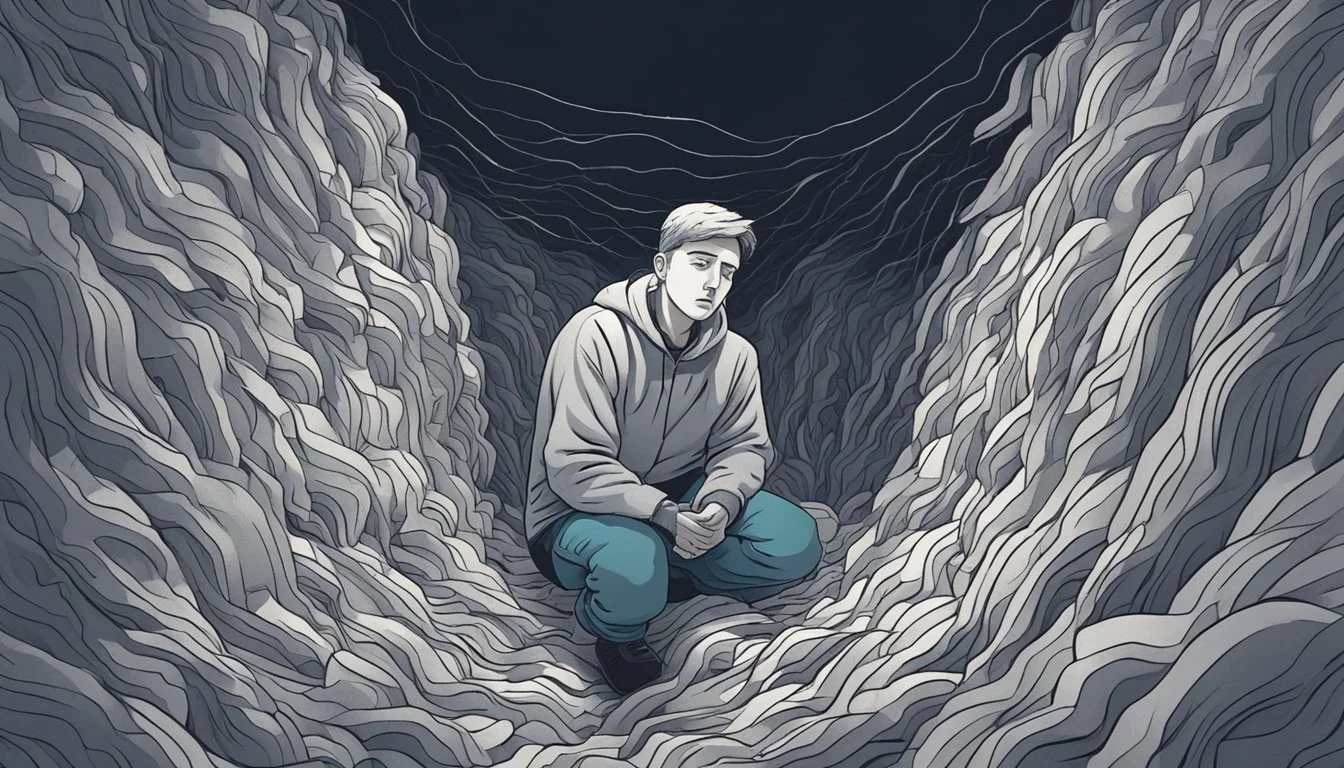Trauma & PTSD
Trauma is an emotional response to a devastating event, such as an accident, sexual assault, or natural disaster. Immediately following the incident, shock and denial are common reactions. Over time, individuals may experience unpredictable emotions, flashbacks, strained relationships, and even physical symptoms like headaches or nausea.
While these feelings are part of the healing process, some individuals may struggle to move forward in life. Psychologists can provide valuable support and guidance to help them effectively manage their emotions.
Trauma can be defined as an overwhelming experience that disrupts an individual's sense of safety and security. It can be caused by a single event or prolonged exposure to stress and danger, and can have serious long-term effects on an individual's mental and physical health. Trauma is a complex concept and understanding the different types of trauma, its symptoms, and how it affects individuals is important for mental health professionals, individuals who have experienced trauma, and their loved ones. In this section, we will provide a comprehensive overview of trauma in psychology.
Types of Trauma
There are different types of trauma; some are caused by a single event while others are prolonged exposure to stress and danger. Acute trauma is a single event or incidents that cause distressful feelings such as accidents, natural disasters and sexual and physical assaults.
Chronic trauma, on the other hand, refers to long-term exposure to stress and danger, such as living in a warzone or experiencing long-term abuse. Complex trauma refers to experiencing multiple traumas, which are usually long-term events and frequently occur during childhood.
Trauma Symptoms
Trauma symptoms can manifest both physically and psychologically. Physiologically, a person may experience fluctuating emotions, anxiety, depression and the inability to relax. The major psychological symptoms of trauma include avoidance, intrusive thoughts, hypervigilance and dissociation.
These symptoms can become overwhelming and interfere with an individual's day-to-day life, in some cases leading to the development of other mental health conditions such as post-traumatic stress disorder (PTSD).
Trauma Treatment
There are various treatment options available for those who have experienced trauma, and the type of treatment recommended depends on the severity and type of trauma. Trauma-focused Cognitive Behavioral Therapy (CBT) is a talking therapy that is used to help manage and alleviate the long-term effects of trauma.
Other therapies such as Eye Movement Desensitization and Reprocessing (EMDR) or trauma-focused medication are also effective therapies. Trauma treatment may also include self-help groups or support groups, which can provide a safe and supportive environment for individuals to speak about their experiences and connect with others who may have shared similar experiences.
Trauma Prevention
Prevention is better than cure, and trauma prevention can start at an individual level by proactively engaging in activities that promote personal well-being such as self-care, mindfulness, and stress-reducing exercises.
It is essential to recognize the signs of trauma and seek help early on before it manifests into long-term mental health problems. Education can provide information on how to maintain a safe and healthy environment and assist individuals who have experienced trauma.
Conclusion
Trauma can have long-lasting effects on an individual's emotional and physical well-being. The impact of trauma can be reduced through early intervention, support groups, and therapy. Understanding the different types of trauma, its symptoms, treatments, and prevention methods can provide a comprehensive perspective on how to manage and cope with trauma.
It is important for individuals who have experienced trauma to know they are not alone, and that help and resources are available. As mental health professionals, family members, and communities, we all play a role in supporting individuals who have experienced trauma and facilitating their path to healing and well-being.
Comparing Acute and Chronic Trauma Response Disorders
Explore the distinctions between ASD vs PTSD in trauma response. Learn about symptoms, duration, and treatment approaches for Acute Stress Disorder and Post-Traumatic Stress Disorder, and how they differ in onset and long-term impact.
Examining Dream Content in Posttraumatic Stress Disorder
Explore the question: Are PTSD nightmares always about the trauma? Learn about the nature of dreams in post-traumatic stress disorder, how they may vary from the original traumatic event, and their role in the overall symptom picture of PTSD.
Understanding the Postal Status of Trauma Awareness Postage
Investigate the question: Are PTSD stamps forever stamps? Learn about the PTSD awareness postage stamp, its availability, and whether it falls under the category of forever stamps issued by the United States Postal Service.
Understanding Compensation for Trauma-Related Legal Claims
Explore the concept of average PTSD settlement amounts in legal cases. Learn about factors influencing compensation, typical ranges for settlements, and what to consider when seeking damages for post-traumatic stress disorder in legal proceedings.
Examining Acute Stress Episodes in Posttraumatic Stress Disorder
Investigate the question: Are PTSD attacks a thing? Learn about intense episodes of anxiety and fear experienced by individuals with post-traumatic stress disorder, their characteristics, triggers, and how they differ from panic attacks.
Legal Status of Canine Companions for Trauma Survivors
Explore the question: Are PTSD dogs service animals? Learn about the legal status, rights, and responsibilities associated with dogs trained to assist individuals with post-traumatic stress disorder, and how they differ from emotional support animals.
Understanding Posttraumatic Stress in Military Personnel
Explore Army PTSD and its impact on military personnel. Learn about combat-related trauma, symptoms specific to soldiers, treatment options, and support services available for veterans and active-duty members dealing with post-traumatic stress disorder.
Examining Connections Between Trauma and Obsessive Disorders
Investigate the question: Are PTSD and OCD related? Explore potential connections, overlapping symptoms, and differences between post-traumatic stress disorder and obsessive-compulsive disorder, and their implications for mental health treatment.
Comparing Trauma and Personality Disorder Symptoms
Explore the question: Are PTSD and BPD similar? Learn about shared symptoms, differences, and potential relationships between post-traumatic stress disorder and borderline personality disorder. Understand the challenges in diagnosis and treatment.
Examining Trauma-Related Dreams in Posttraumatic Stress Disorder
Explore the question: Are PTSD nightmares always about the event? Learn about the nature of trauma-related dreams, their variations, and how they may differ from the original traumatic experience in individuals with post-traumatic stress disorder.
Comparing Symptoms of Trauma and Mood Disorders
Explore the question: Are PTSD and bipolar similar? Learn about shared symptoms, differences, and potential relationships between post-traumatic stress disorder and bipolar disorder. Understand the challenges in diagnosis and treatment of these conditions.
Examining Connections Between Trauma and Mood Disorders
Investigate the question: Are PTSD and bipolar related? Explore potential connections, overlapping symptoms, and differences between post-traumatic stress disorder and bipolar disorder, and their implications for mental health diagnosis and treatment.
Distinguishing Between Traumatic Experiences and Disorder
Explore the question: Are PTSD and trauma the same? Learn about the distinctions between traumatic experiences and post-traumatic stress disorder, including symptoms, duration, and impact on daily life. Understand when trauma may lead to PTSD.
The Role of the Fear Center in Posttraumatic Stress Disorder
Explore the connection between amygdala and PTSD. Learn how this brain region influences fear responses, emotional processing, and memory in individuals with post-traumatic stress disorder, and its implications for treatment approaches.
Understanding Rage as a Symptom of Posttraumatic Stress
Explore the connection between anger and PTSD in trauma survivors. Learn about the causes of rage in post-traumatic stress disorder, its impact on daily life, and effective strategies for managing and reducing anger symptoms.
Examining Connections Between Trauma and Personality Disorders
Investigate the question: Are PTSD and BPD related? Explore the potential connections, overlapping symptoms, and differences between post-traumatic stress disorder and borderline personality disorder, and their impact on mental health treatment.
Comparing Stress Response and Trauma Related Disorders
Explore the distinctions between adjustment disorder vs PTSD. Learn about symptoms, causes, duration, and treatment approaches for both conditions to better understand these stress-related mental health disorders and their impact.
Life Beyond Posttraumatic Stress Disorder
Explore life after PTSD and the journey of recovery from post-traumatic stress disorder. Learn about coping strategies, personal growth, and rebuilding relationships as you navigate the path to healing and resilience beyond trauma.
Managing Heightened Stress Responses in Trauma Survivors
Explore the connection between anxiety from PTSD and trauma experiences. Learn about symptoms, coping strategies, and treatment options for managing anxiety associated with post-traumatic stress disorder to improve quality of life.
Examining Aripiprazole as a Treatment for Posttraumatic Stress
Investigate the use of Abilify and PTSD treatment. Learn about the potential benefits, side effects, and effectiveness of aripiprazole in managing symptoms of post-traumatic stress disorder, as well as current research findings.




















